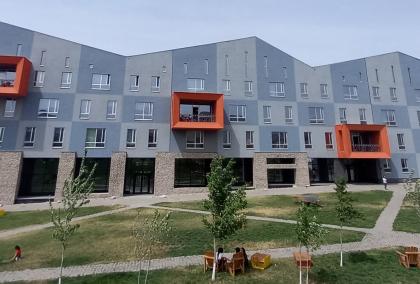How are the Fulbright grantees selected?
We are looking for applicants who are aiming at an academic research career or are professionals in various sectors of society.
Technical review
The evaluation of the applications begins with a technical review. The purpose of the review is to make sure applicants fulfill the minimum requirements stated in the application instructions and that the applications include all of the required documents. Only applications that have arrived by the deadline and include all of the required documents are considered in the selection process. If even one document is missing from the application package, the application will not be evaluated. The Foundation has created a simple checklist for the applicants to prevent an unfortunate elimination from the selection process based on a missing document.
The discipline-specific expert statements
The Fulbright Finland Foundation sends technically eligible applications to discipline-specific experts for further evaluation. At this stage, university professors and experts from various research centers, mainly from Finland and the U.S., are involved. Many of the evaluators are also Fulbright alumni. The Foundation has created a wide expert network, which is updated annually.
Below you can find application tips from experienced evaluators and their expectations regarding a good application:
A good application is clear; the applicant has a clear plan of what they want to study or what they want to focus on.
In the applications, I mostly pay attention to the whole. In a good application, you can see that the applicant has familiarized themselves well with American universities in advance and that they have actually chosen an institution that can give them the most, considering their own level of expertise. It’s also important to see that the applicant has a clear vision of how their current expertise is linked to the planned period in the U.S. and how the visit helps them in the future. I also find it important that the teaching/studying in this particular host organization/field of study is relatively strong in the U.S. specifically.
One should find out in advance which universities offer important courses and how one can combine them. It would also be good to mention something about the course content.
A good application shows what additional value the grant year can provide for the applicant and their community.
I’ve often missed the information or at least an estimation of how the grant would benefit Finland. The benefit for Finland as a result of the grant ought to be described and reasoned – it’s not enough that the applicant themselves benefit from the grant. Of course, it’s not easy to answer this question but one could at least try.
The ASLA-Fulbright grant is or at least can be much more significant for the applicant than grants provided by the Finnish foundations etc. This is why one should invest in the application quite a lot.
Statements from home universities and grant sponsors
Most of the grants are either cost-shared or sponsored by partner foundations or applicants' home universities. The Foundation asks for an evaluation of the applications from applicable grant sponsors as well as from those Finnish universities which have notified they are interested in co-funding their students’ grants. The committees of the Fulbright Finland Foundation use these statements when making the selections. All applications have to fulfill the requirements set for a Fulbright grantee, so the support of the sponsor/university alone is not enough for selection. If the sponsor/university does not participate in funding the grant, the Fulbright Finland Foundation Board can select the applicant to be fully funded by the Fulbright Finland Foundation.
Selecting the applicants for an interview
The pre-selection committee of the Fulbright Finland Foundation selects part of the applicants for an interview based on the expert statements, evaluations carried out by the sponsors and Finnish universities, the grant application, and the attached letters of reference, essays, and study certificates. The pre-selection committee consists of Board members of the Foundation, Fulbright alumni, and collaborators.
When evaluating and making the pre-selection, the committee focuses on the Foundation's evaluation criteria.
The suitability to be an ambassador for Finland and the grant program is found out with the help of interviews
Approximately half of the applicants are invited to a discussion-style interview held online. After the initial selection stage, where applicants’ academic achievements are the main focus, in the interviews, the committee concentrates on determining whether an applicant is suitable for an academic cultural exchange program where the grantee is expected to be an ambassador for Finland and the Fulbright program in the U.S. Because of this we are looking for applicants who have the ability to create networks and connections between Finland and the U.S. The interview committee also evaluates the applicants’ abilities to facilitate future change, promote the development of science, arts, or their own professional field, and create opportunities for international collaboration and connections. These types of qualities are difficult to evaluate based solely on an application, which is why the interviews have an important role in the selection process.
Because the grant selections are not solely based on academic achievements, in some cases the selection committee has had to reject an applicant who, based on their application, has seemed to be an excellent candidate but has not fulfilled the criteria in terms of personal attributes required from a citizen diplomat.
The Fulbright Finland Foundation selects the grantees
At the end of all the selection stages, usually after incredibly difficult consideration, the committee presents their selection recommendations to the Fulbright Finland Foundation’s Board of Directors, which makes the final decisions on the grantees. The formal acceptance of the U.S. program partner is given by the Fulbright Foreign Scholarship Board (FFSB), appointed by the President of the United States. Both the number of applicants and the acceptance rate vary depending on the year.


